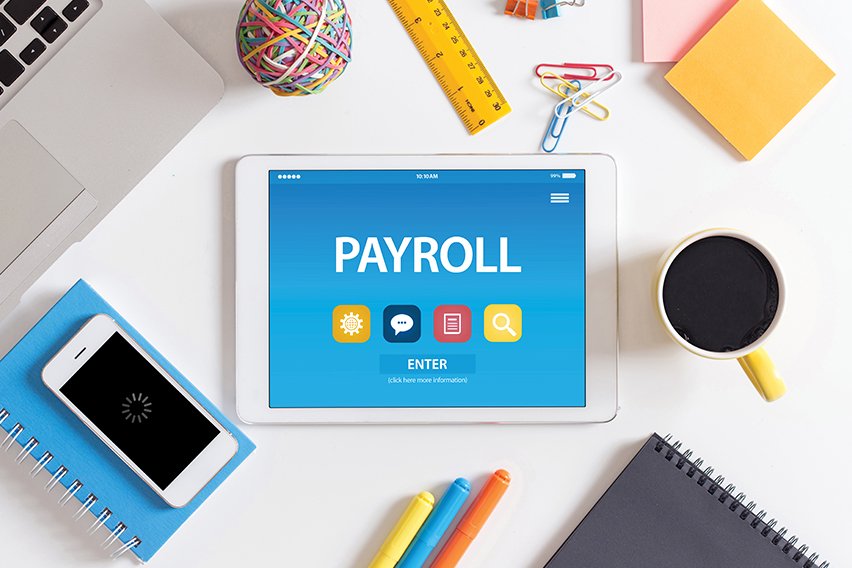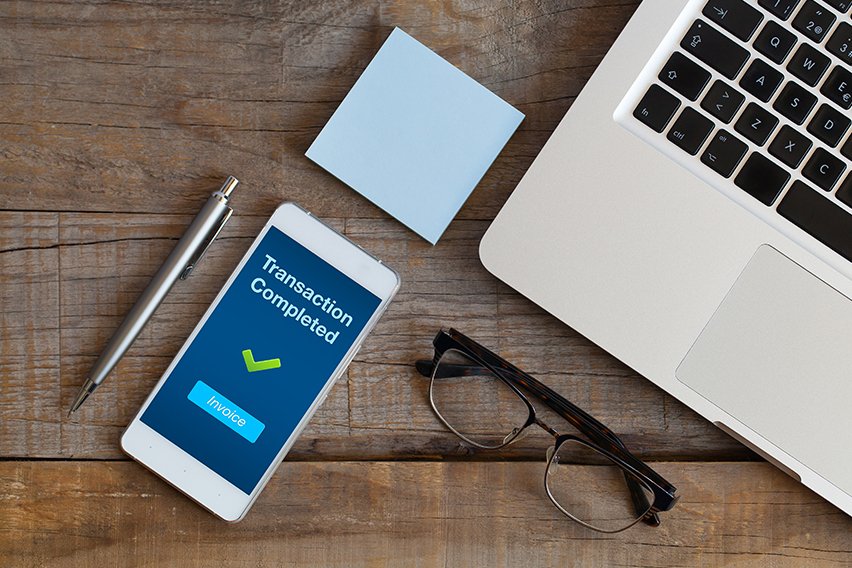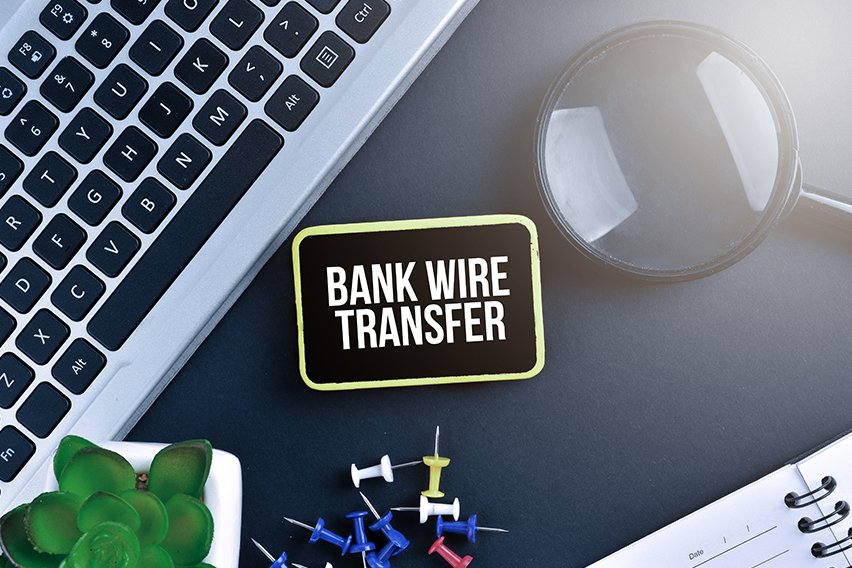Payroll Direct Deposit: A Complete Guide for Your Business

As a small business, it’s vital that you pay your staff correctly and on time.
You don’t want to get a reputation as an employer who suffers from paycheck issues, as there is no chance any skilled workers will want to work for you.
You’ll want a way to quickly and efficiently pay your staff each month that guarantees that the money gets to them on time. That’s why direct deposit can be a great way to go.
But what is direct deposit? And what is the best software out there?
We’ll look at the top 4 currently on the market for small businesses.
Key Takeaways
- Direct deposit payroll software transfers funds from your business account to your employees
- To set up direct deposit, you’ll need a provider, bank details for yourself and your employees, and a deposit schedule
- Direct deposit is secure, convenient, and timely
- There are a number of direct deposit payroll software that offer an affordable alternative to bank services
Here’s What We’ll Cover:
What Is Payroll Direct Deposit?
What Are The Benefits Of Direct Deposit?
How To Set Up Direct Deposit Payroll For Your Business
The Best Direct Deposit Payroll Software
What Is Payroll Direct Deposit?
Direct deposit is a payment method that electronically transfers funds to a checking or savings account.
This can help the payee receive payment faster, meaning neither the employer nor the employee has to deal with physical paper checks.
Direct deposits are a great way to process payroll and transfer wages to your employee. They are directly deposited into their bank account for quick and easy access and can also be used for tax refunds and other types of payments.

How Does Direct Deposit Work?
Direct deposit transfers money directly from one bank account to another. The employer gathers the employee’s bank account information to set up direct deposit, which is then sent to the employer’s bank. From there, an automated clearing house, or ACH, moves the money between banks. The employer sets up which day they want to send out the direct deposits, which are then automatically sent from the employer’s bank account to the employee’s account. This allows you to pay employees without using a check and without anyone having to visit the bank.
What Are The Benefits Of Direct Deposit?
Direct deposit offers several advantages compared to physical paychecks. While physical checks have risks like loss or theft, direct deposit is a simple and secure way to transfer money. By automatically setting up the transfer date, direct deposit guarantees that employees will be paid on time, which helps establish credibility for your business. Direct deposit is also a convenient means of payment, as neither the employer nor the employee needs to visit the bank to complete the transaction.
How To Set Up Direct Deposit Payroll For Your Business
Setting up direct deposit for your business is a straightforward process. The following steps outline how to set up direct deposit to streamline your payroll:
1. Decide whether you want to send direct deposits through your business financial institution or if you’d prefer to use third-party accounting software to organize the process. Consider pricing options and customer support when choosing your provider.
2. Input your business bank account information with your direct deposit provider.
3. Gather employee banking information, including bank account number, account type, routing number, and bank name. Employees will also have to sign a direct deposit authorization form.
4. Input your employees’ information into your direct deposit system
5. Set up your direct deposit payroll schedule. Keep in mind that there may be a set-up time of several days, so give yourself plenty of time in advance of the first payday.
The Best Direct Deposit Payroll Software
There are a number of online payroll software programs available to use for any sized business. Some may charge monthly fees, while others may offer free payroll software with transaction-based fees. But which one would work best for you?
Let’s look at the top 4 direct deposit services currently on the market.
1. FreshBooks
FreshBooks is a fantastic choice for dealing with your payments. Its services are perfectly tailored for small business owners looking to send and accept all types of payments.
FreshBooks is accounting software that provides accounting solutions for small business owners. It has a range of options allowing you to keep all your business needs in one place.
The service also offers FreshBooks Payments. This solution makes it easier for your clients to process online transactions, which means you can get paid twice as fast.
They offer simple pricing, the software is easy to use and there are no hidden costs.
Looking for even more efficient payroll solutions? FreshBooks’ payroll software integrates with Gusto for unlimited payrolls, automatic payments, and easy tax filing. Sign up today for your free trial and see how FreshBooks can help make payroll easier than ever.

2. Patriot Payroll
Patriot Payroll is an integrated HR and payroll management solution. They promise to streamline all of the processes that you normally associate with managing your payroll and payroll taxes.
Patriot Payroll allows its users to process their payroll through direct deposits. You can also process through electronic checks.
They also offer a personalized employee portal. This is for employees to access their payroll and all of their related financial information.
Patriot Payroll is specifically designed for small to medium-sized businesses with 1-100 employees.
They offer a 60-day free trial so you can try it out before you put money down. If you decide to upgrade to their basic paid plan, it starts at just $10 per month and an extra $4 per month per employee.
3. PayPal Direct Deposits
Let’s say you’re not looking for fully integrated software with your direct deposit provider. You just need a quick and easy way to process a direct deposit, then you don’t have to look much further than PayPal.
PayPal is a tried and trusted software that is easy to use, quick to set up and relatively secure.
All you’d have to do is sign up for a PayPal Cash Plus account, and you can start using direct deposits immediately.
PayPal Cash Plus doesn’t require a monthly fee, but fees are attributed to any payments made.

Conclusion
Direct deposits are a quick, easy and secure way to process employee payroll. Transferring money directly from your business bank account to your employees’ bank account can reduce security concerns, ensure prompt payments, boost your payment credibility, and help with payroll tax filing.
Direct deposit is quick and easy to set up–simply choose your provider, input your and your employees’ banking information, and set up your schedule. In addition to running direct deposit payments through your bank, you can opt for a third-party provider to streamline your payroll process.
Are you seeking more business advice on everything from starting small businesses to new business practices?
Want to Learn More About Payroll? Then check out our Payroll category.
FAQs On Payroll Direct Deposit
How long does direct deposit payroll take?
Most direct deposits are completed within two business days. However, setting up the process may take several weeks, so it’s best to begin setup early.
Is payroll the same as direct deposit?
Payroll and direct deposit are related but not the same. Direct deposit refers to a type of direct transfer, while payroll refers to the process of paying employees.
Why is my direct deposit payroll late?
A payroll direct deposit may be delayed if payroll falls on a bank holiday, as direct deposits are only processed Monday-Friday.
Do payroll checks deposit instantly?
If your payroll check is paid through direct deposit, it will usually be transferred to your account within two business days.
How much does direct deposit payroll cost?
Payroll processing via direct deposit varies based on the bank or third-party service you use, so it’s a good idea to compare prices when choosing your direct deposit provider.
Can a direct deposit be denied?
If bank account details are incorrect, a bank can refuse a direct deposit transaction.
About the author
Jami Gong is a Chartered Professional Account and Financial System Consultant. She holds a Masters Degree in Professional Accounting from the University of New South Wales. Her areas of expertise include accounting system and enterprise resource planning implementations, as well as accounting business process improvement and workflow design. Jami has collaborated with clients large and small in the technology, financial, and post-secondary fields.
RELATED ARTICLES


 What Is a Payroll Journal Entry & How to Book an Entry?
What Is a Payroll Journal Entry & How to Book an Entry? What Is a Payroll Report? 5 Types of Payroll Reports
What Is a Payroll Report? 5 Types of Payroll Reports An Extensive Guide to Payroll Forms
An Extensive Guide to Payroll Forms 4 Best Payroll App Selections for Small Business
4 Best Payroll App Selections for Small Business Top 5 Online Payment Solutions
Top 5 Online Payment Solutions ACH vs Wire: Difference Between ACH and Wire Transfer
ACH vs Wire: Difference Between ACH and Wire Transfer